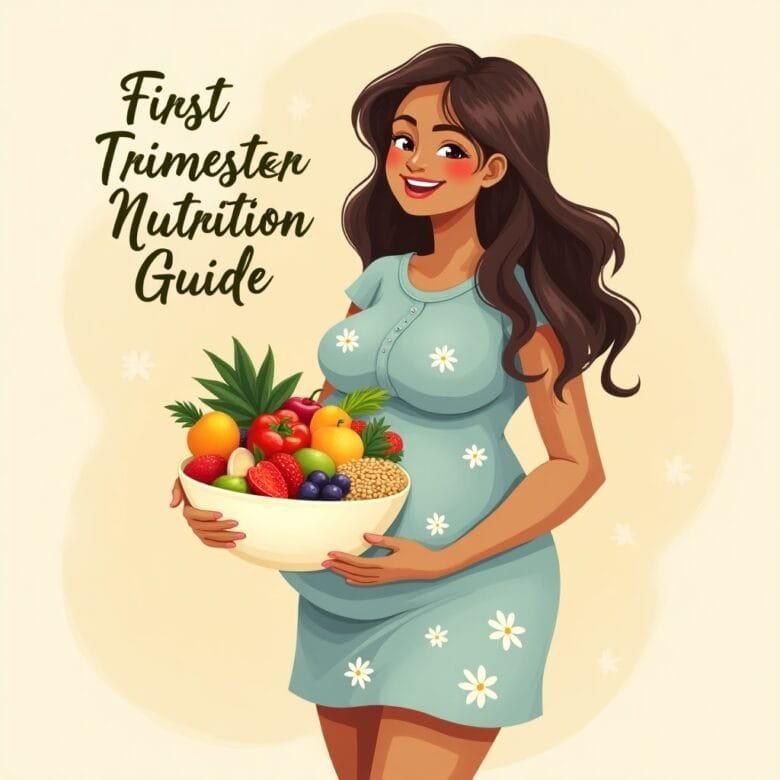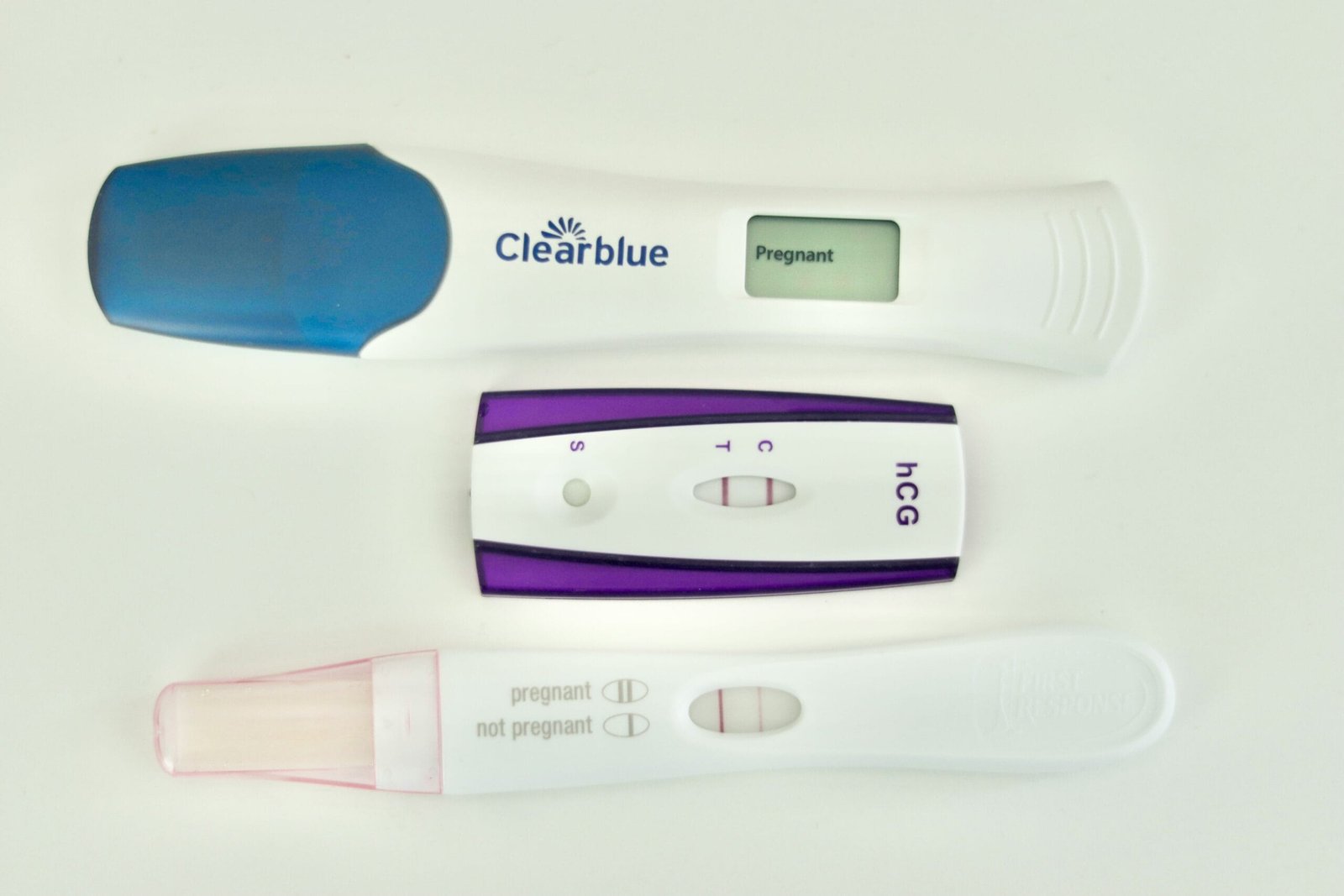Understanding the Importance of Nutrition in the First Trimester
The first trimester is a critical period in pregnancy characterized by rapid development and significant changes for both the embryo and the mother. During these initial weeks, the foundation for the baby’s health is established, making first trimester nutrition guide an essential resource for expectant mothers. Proper nutrition during this phase is vital as it directly influences the formation of vital organs, including the heart, brain, and spinal column.
A well-balanced diet rich in whole foods not only supports the baby’s growth but also shields the mother from potential pregnancy-related complications. Nutrient-dense foods, including fruits, vegetables, whole grains, lean proteins, and healthy fats, provide the energy and nutrients needed for the increased metabolic demands of pregnancy. Additionally, high-quality first trimester nutrition guide recommendations can help manage common discomforts, such as morning sickness, and ensure optimal maternal health throughout the pregnancy.
In summary, understanding the importance of sound nutrition during the first trimester is foundational in establishing the groundwork for a healthy pregnancy journey. Adequate nutrient intake not only facilitates essential developmental milestones for the baby but also promotes overall maternal well-being. Establishing healthy eating habits during this crucial time can have lasting effects throughout the pregnancy and beyond, making it essential for expectant mothers to prioritize their nutrition.
Key Nutrients Essential for Expecting Mothers
During the first trimester of pregnancy, adequate nutrition becomes paramount for both maternal health and fetal development. Expecting mothers should focus on incorporating key nutrients into their diets to support these critical stages. Among the most essential nutrients are folic acid, iron, calcium, omega-3 fatty acids, and vitamins A, C, and D.
Folic acid plays a crucial role in preventing neural tube defects and is vital for the proper development of the brain and spinal cord. The recommended daily allowance (RDA) for folic acid during the first trimester is 600 micrograms. Rich sources of folic acid include leafy green vegetables, legumes, citrus fruits, and fortified cereals.
Iron is another essential nutrient, as it supports the increased blood volume and oxygen supply required during pregnancy. The RDA for iron in the first trimester is 27 milligrams, with recommendations to consume iron-rich foods such as red meat, poultry, fish, lentils, and spinach. Pairing these foods with vitamin C-rich items can enhance iron absorption.
Calcium supports the development of the baby’s bones and teeth and helps maintain maternal bone health. An RDA of 1,000 milligrams of calcium is suggested during pregnancy. Excellent sources include dairy products, fortified plant-based milk, almonds, and dark green leafy vegetables.
Omega-3 fatty acids are vital for brain development and cognitive function. The RDA for omega-3s is approximately 200-300 milligrams of DHA, which can be obtained from fatty fish like salmon, walnuts, and flaxseeds. Lastly, vitamins A, C, and D are crucial for immune support, skin health, and fetal bone growth. Sources include bright-colored fruits and vegetables for vitamin C, fish liver oil for vitamin D, and carrots and sweet potatoes for vitamin A.
By prioritizing these nutrients through a balanced diet, expecting mothers can ensure the health of both themselves and their developing fetus during this important first trimester period.
Healthy Food Choices for the First Trimester
During the first trimester, maintaining a balanced diet is crucial for the health of both the mother and the developing fetus. Incorporating a variety of whole foods ensures that the body receives essential nutrients, vitamins, and minerals necessary for both growth and energy. A first trimester nutrition guide will highlight several key food groups that expecting mothers should focus on throughout this vital stage.
Fruits and vegetables are paramount in a healthy diet. Fresh produce is rich in vitamins such as folate, which is essential for fetal development, and fiber, which helps maintain digestive health. Examples of fruits to include are bananas, oranges, and berries, while leafy greens such as spinach and kale, as well as cruciferous vegetables like broccoli and cauliflower, are excellent choices. They can be easily incorporated into meals through smoothies, salads, or steamed dishes.
Whole grains should also form an integral part of the first trimester nutrition guide. Foods such as brown rice, quinoa, and whole grain bread provide necessary carbohydrates and fiber. These options keep energy levels stable and help to prevent constipation, a common issue during pregnancy. Preparing meals with whole grains can be as simple as swapping white rice for quinoa in recipes or choosing whole grain pasta.
Lean proteins play a significant role in supporting muscle and tissue development. It is recommended to include sources like chicken, turkey, fish, beans, and legumes. When preparing meals, consider methods such as grilling, baking, or steaming to minimize added fats while maximizing flavor. Additionally, dairy products such as yogurt and cheese offer calcium and protein, which are vital for bone health. A yogurt parfait with fruits and whole grains can provide a nutritious breakfast or snack option.
Integrating these healthy food choices into daily routines not only contributes to the well-being of the mother but also sets the foundation for a healthy pregnancy. It is essential to remain attentive to food choices and strive to include a balanced array of nutrients during this critical time.
Foods to Avoid During Pregnancy
The first trimester of pregnancy is a critical period for fetal development, and proper nutrition plays a fundamental role in ensuring a healthy pregnancy. While many foods are beneficial for expectant mothers, it is equally important to be aware of certain foods and beverages that should be avoided or limited. These include alcohol, specific types of fish, unpasteurized dairy products, as well as raw or undercooked meats and eggs.
Alcohol consumption is widely recognized as detrimental during pregnancy, particularly in the first trimester. The intake of alcohol can lead to a range of complications, including fetal alcohol spectrum disorders (FASDs). Even small amounts of alcohol can pose risks to the developing fetus, hence eliminating it entirely from the diet is strongly advised.
Another category of food to avoid is fish that are high in mercury. Some seafood, such as shark, swordfish, and king mackerel, contain elevated levels of mercury, which can adversely affect fetal brain development. Expectant mothers should opt for fish that are lower in mercury, such as salmon or sardines, ensuring that they reap the benefits of omega-3 fatty acids while minimizing potential hazards.
Unpasteurized dairy products present another risk during the first trimester. These products can harbor harmful bacteria, such as Listeria and Salmonella, which can lead to severe infections that may risk the health of both mother and baby. It is crucial to choose pasteurized dairy products to ensure food safety.
Lastly, raw or undercooked meats and eggs should be completely avoided. These foods can contain pathogens that may result in foodborne illnesses, posing serious risks during pregnancy. Cooking these items thoroughly is essential in safeguarding both maternal and fetal health.
In conclusion, adhering to a first trimester nutrition guide entails being informed about the foods and beverages to avoid for a safe and healthy pregnancy. By making conscious dietary choices, expectant mothers can support their well-being and that of their developing child.
Managing Morning Sickness with Nutrition
Morning sickness is a common experience for many women during the first trimester of pregnancy. This condition is characterized by nausea and vomiting, typically occurring in the early hours but can persist throughout the day. Understanding effective nutritional strategies can play a significant role in managing this discomfort. A first trimester nutrition guide should emphasize the importance of small, frequent meals. Rather than consuming three large meals, aim to have five to six small meals spaced throughout the day. This approach can help stabilize blood sugar levels and reduce feelings of nausea.
When selecting foods, consider incorporating options that are gentle on the stomach. Ginger is renowned for its natural anti-nausea properties and can be consumed in various forms, such as ginger tea, ginger ale, or ginger candies. Crackers, such as plain saltines or whole-grain varieties, are another popular choice, as they can help absorb excess stomach acid. Protein-rich foods like nuts, yogurt, and lean meats may also aid in maintaining energy levels and can be less likely to provoke nausea compared to heavier meals.
Hydration is equally essential during this time. Keep a bottle of water nearby, and consider sipping herbal teas or electrolyte-rich drinks to stay hydrated. It is advisable to avoid overly sweet or greasy foods, which can exacerbate nausea. If morning sickness becomes severe or persists, it is vital to contact a healthcare professional for further evaluation. Persistent nausea can sometimes indicate conditions that require medical intervention, such as hyperemesis gravidarum.
In summary, managing morning sickness through proper nutrition involves focusing on frequent, small meals, incorporating soothing foods, and staying hydrated. These strategies can greatly contribute to a more comfortable first trimester experience. By actively engaging in dietary choices, women may find relief from the challenges of morning sickness, setting a positive tone for their pregnancy journey.
Hydration: The Overlooked Component of Nutrition
In the first trimester, proper hydration is a vital yet often overlooked aspect of a comprehensive nutrition guide for expectant mothers. The rapid physiological changes that occur during this period necessitate an increased emphasis on fluid intake. Adequate hydration not only supports overall health but also plays a crucial role in nutrient absorption. It is instrumental in transporting essential vitamins and minerals to the developing fetus, thereby laying a solid foundation for proper growth and development.
Furthermore, staying well-hydrated can significantly reduce fatigue, a common concern for many women in early pregnancy. Fatigue can be exacerbated by dehydration, as the body struggles to perform its metabolic functions effectively. Drinking enough fluids helps maintain energy levels, promoting a more positive outlook and improved well-being. Additionally, hydration can assist in managing common pregnancy symptoms such as constipation and nausea, which can plague many women during the first trimester.
As for recommendations, it is generally advised that pregnant women aim for approximately 8 to 10 cups (64 to 80 ounces) of fluids per day. This includes water, herbal teas, and other hydration sources like broth or smoothies. While water should be the primary source of hydration, incorporating nutrient-rich beverages can contribute to overall fluid intake. For instance, low-sugar juices and electrolyte-rich drinks can be beneficial as they provide additional vitamins and minerals.
It is essential to listen to the body’s hydration cues and adjust fluid intake accordingly, especially during hot weather or after physical activity. By recognizing hydration as a pillar of the first trimester nutrition guide, expectant mothers can enhance their overall health and support their developing baby during this critical phase.
The Role of Prenatal Vitamins in Supplementing Your Diet
During the first trimester, proper nutrition is crucial for both the mother and the developing fetus. While a balanced diet should provide most of the essential nutrients, many women find it beneficial to incorporate prenatal vitamins as an additional source of critical vitamins and minerals. These supplements are specifically formulated to support the increased nutritional needs during pregnancy, particularly in the first trimester, when fetal development is rapid.
When selecting prenatal vitamins, look for those that include essential components such as folic acid, iron, calcium, and DHA. Folic acid is particularly vital, as it has been shown to reduce the risk of neural tube defects in the developing baby. Iron helps prevent anemia by supporting increased blood volume in the body, while calcium is necessary for bone development. DHA, an omega-3 fatty acid, contributes to the development of the baby’s brain and eyes.
It is important to note that not all prenatal vitamins are created equal. Consider consulting with a healthcare provider to identify the appropriate brand and formulation tailored to your specific dietary needs. Pay attention to the dosage of each nutrient, as some may be more beneficial in higher concentrations compared to others. Additionally, dietary restrictions and pre-existing health conditions can influence the selection of suitable vitamins.
Incorporating prenatal vitamins into your first trimester nutrition guide serves as a safety net, ensuring that any nutritional gaps in your diet are filled. While whole foods remain the foundation of a healthy diet, these supplements can provide peace of mind that both mother and child are receiving essential nutrients during this critical stage of development. Therefore, coupling a nutritious diet with the right prenatal vitamin can contribute significantly to a healthy pregnancy.
Creating a Balanced Meal Plan for the First Trimester
Developing a balanced meal plan during the first trimester is crucial for ensuring both maternal health and fetal development. The initial stage of pregnancy often brings about numerous changes, including dietary preferences and potential sensitivities. Therefore, it is imperative to create a meal plan that not only meets nutritional needs but also accommodates factors such as evening nausea and specific cravings.
A well-rounded first trimester nutrition guide should consist of a variety of food groups, including fruits, vegetables, proteins, whole grains, and healthy fats. To start, consider incorporating fresh fruits like bananas and berries, which serve as excellent snacks and provide essential vitamins and antioxidants. Leafy greens, such as spinach and kale, should be included in meals for their rich folate content, supporting the development of the baby’s neural tube.
When it comes to protein sources, options such as lean meats, fish, beans, and legumes are ideal. These foods provide essential amino acids needed for cell growth. Whole grains, including brown rice, quinoa, and whole grain bread, are vital for sustained energy levels and provide crucial carbohydrates. Healthy fats found in avocados, nuts, and olive oil support fetal brain development and help in nutrient absorption.
To avoid overwhelming nausea, smaller, more frequent meals may be beneficial. This approach not only keeps nausea at bay but also ensures that pregnant individuals receive a constant supply of nutrients throughout the day. Experimenting with various meals can help identify preferences and potential triggers. Lastly, paying attention to portion sizes is key. A balanced plate might consist of one quarter protein, one quarter whole grains, and half fruits and vegetables, which leads to a well-rounded, nutritious meal plan.
By integrating these elements, prospective mothers can create a first trimester nutrition guide that is both satisfying and health-conscious, ultimately contributing to a successful pregnancy journey.
Consulting with a Healthcare Professional
During the first trimester, proper nutrition is critical for both the mother and the developing fetus. Given the biological changes that occur during this period, it is highly advisable for expectant mothers to consult with healthcare professionals. Nutritionists, dietitians, and doctors possess the expertise required to provide tailored dietary advice, ensuring that nutritional needs are met adequately. A personalized first trimester nutrition guide can significantly enhance health outcomes for both the mother and her baby.
Healthcare professionals can assess individual health needs, taking into consideration factors such as pre-existing health conditions, potential dietary restrictions, and lifestyle habits. For instance, if a mother has conditions like diabetes or hypertension, a specialized nutrition plan can help manage these issues while also ensuring that the baby receives the necessary nutrients for development. Additionally, they can identify any deficiencies that may need to be addressed, providing recommendations for supplements or fortified foods if required.
Moreover, consultations with nutritionists or dietitians can assist pregnant women in navigating the often overwhelming amount of conflicting dietary information available online. These professionals can simplify the complexities of food choices, helping mothers to integrate diverse food groups into their diets and avoid harmful substances that might adversely affect their pregnancy.
Overall, seeking guidance from healthcare professionals ensures a holistic approach to first trimester nutrition. With their knowledge and experience, these experts can equip mothers with the tools and knowledge they need to make informed choices. The emphasis on personalized nutrition during this crucial time can lead to better health outcomes, reducing the risk of complications and ensuring that both mother and baby thrive throughout the pregnancy journey.



